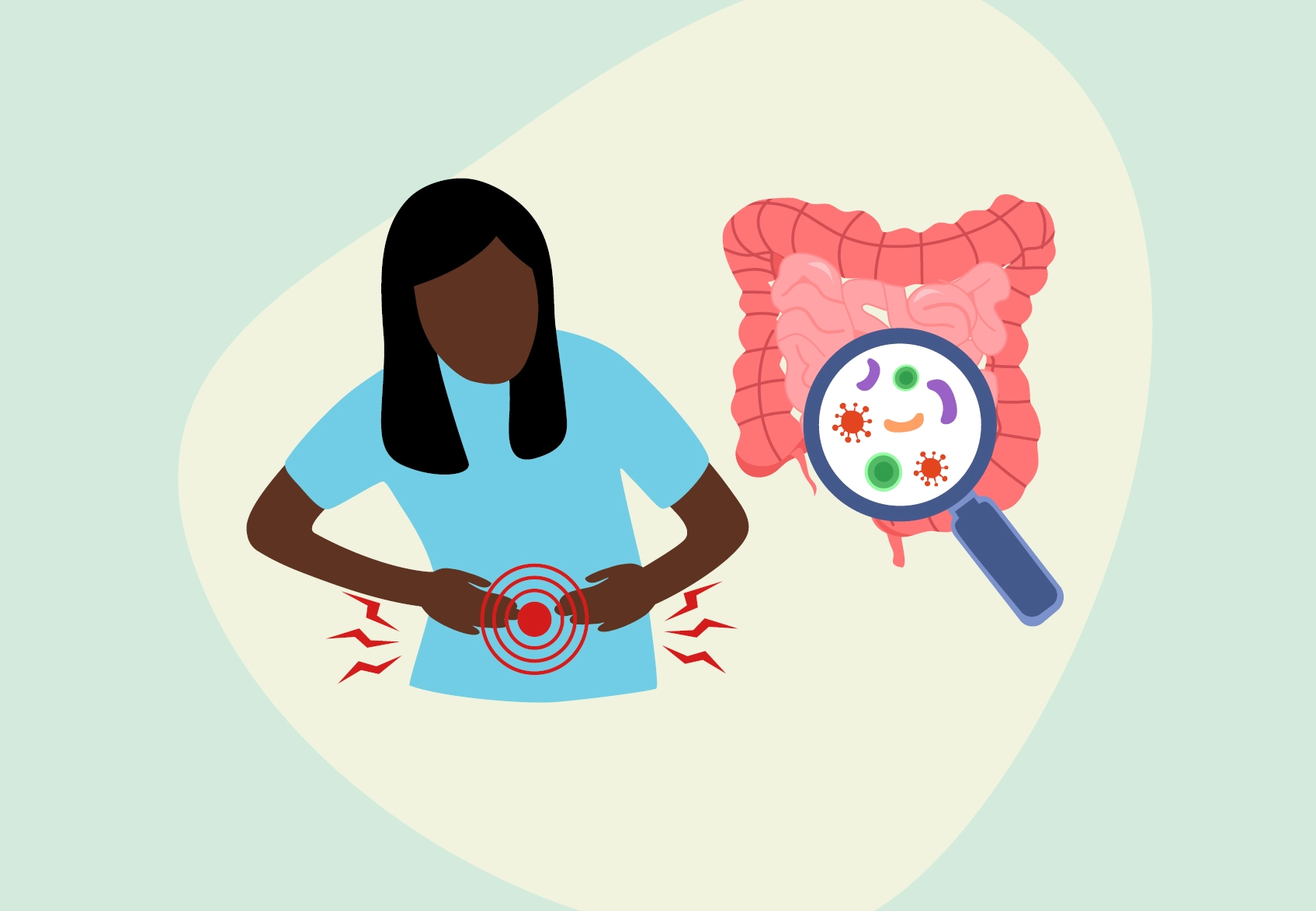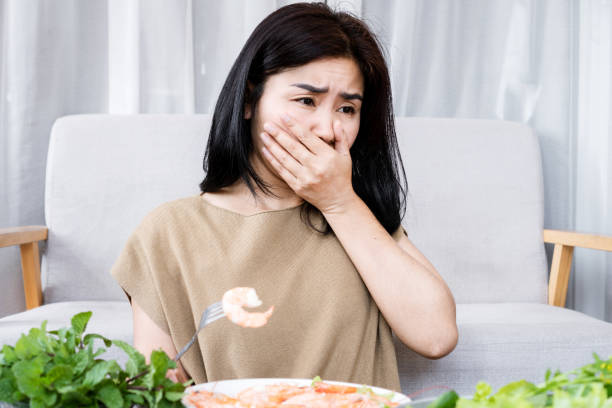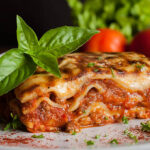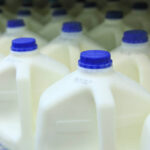Recovering from food poisoning can be a daunting journey back to health and comfort. In our comprehensive guide, “What to Eat After Food Poisoning,” we delve into the critical first steps of nurturing your body back to its normal state. This article isn’t just a list of foods; it’s a beacon of hope for those who have suffered the discomfort and distress that food poisoning can bring. Written by experts in nutrition and gastrointestinal health, our guide is founded on scientific research and medical advice to ensure you receive the most reliable and healing recommendations.
Food poisoning challenges your body in several ways, making the path to recovery a delicate process. Understanding what to eat — and what to avoid — is crucial in helping your digestive system heal, restoring energy levels, and preventing further irritation. Our guide provides a detailed exploration of gentle, nourishing foods that support recovery, along with insights into how these foods facilitate the healing process.
Whether you’re currently recovering from food poisoning or seeking knowledge to prepare for future incidents, this article offers valuable expertise that demonstrates the significance of dietary choices in the healing process. It’s designed to pique your curiosity about how certain foods can aid recovery, encourage further reading into dietary health, and provide a comprehensive understanding of post-food poisoning care.
Embark on your recovery journey with confidence as we guide you through “What to Eat After Food Poisoning.” This article is more than just a guide; it’s a companion in your recovery, offering support and knowledge to help you regain your strength and health with every bite.
Contents
Steps to Take After Food Poisoning

When recovering from food poisoning, it’s important to take things slowly and be gentle with your stomach. Here are some steps to follow:
Let Your Stomach Settle (0-6 Hours)
In the first few hours after food poisoning strikes, it’s best to avoid eating or drinking anything. Let your stomach fully empty itself and settle down. Here are some tips for this initial recovery phase:
- Refrain from eating any solid foods or dairy products, as they can further upset your stomach.
- Avoid drinking liquids, even water, as they may cause vomiting or diarrhea.
- You can suck on ice chips or popsicles if they are tolerable. The small amounts of water can help prevent dehydration without overloading your stomach.
- Be patient and give your body time to expel the contaminants. Symptoms may persist for several hours.
- Rest and sip tiny amounts of water if you can tolerate it. Applying a cool cloth to your forehead can also be soothing.
Getting through the first 0-6 hours can be difficult, but remember it’s temporary. Focus on keeping comfortable until the worst has passed.
Rehydrate with Clear Liquids (After 6 Hours)
After about 6 hours without vomiting, you can start slowly reintroducing liquids to rehydrate. Stick to clear, non-diary liquids at first. Some good options include:
- Water – Start with a few sips and gradually increase intake if tolerated. Getting rehydrated is key.
- Diluted fruit juices – Try apple, white grape, or lemonade without pulp. The extra glucose can help restore energy.
- Clear broths – Sip vegetable, chicken or beef broths for electrolytes.
- Sports drinks – The carbohydrates and electrolytes can replenish what was lost from vomiting and diarrhea.
- Oral rehydration solutions – These pre-mixed fluids optimize hydration better than water alone.
Avoid milk, soy milk, and sugary juices, as the fat, protein, and sugar can worsen diarrhea. Keep taking small, frequent sips of liquids. Adults should aim for around 1 cup every 1-2 hours. Going too fast may cause vomiting.
Watch for signs of dehydration like excessive thirst, dry mouth, infrequent urination, dizziness, or fatigue. If you cannot keep any fluids down due to continued vomiting, seek medical attention.
Eat Bland Foods (After 24 Hours)
Once you’ve gone 24 hours without vomiting, gradually begin incorporating bland foods that are easy on the stomach:
- BRAT diet – Bananas, rice, applesauce, and toast are classics for recovering from gastroenteritis.
- Plain crackers – Low-fiber, low-fat crackers can help settle the stomach.
- Boiled or baked potatoes – High in potassium to replenish electrolyte losses.
- Oatmeal or cream of wheat – The soluble fiber can help regulate digestion.
- Yogurt – Look for brands with live cultures to support gut health.
- Clear soups – Broth-based soups to keep hydrating.
Start with small servings of bland foods. Eat slowly and pause for 20-30 minutes between to assess tolerance before continuing. Too much volume or fiber early on may cause abdominal pain and diarrhea. As your stomach recovers, gradually increase portion sizes and meal frequency.
Monitor and Adjust (Next Few Days to Weeks)
Over the next few days to weeks, slowly work your way back up to a normal diet as symptoms subside. Introduce new foods one at a time and be alert to any that trigger diarrhea or abdominal discomfort.
Some tips for this transition phase:
- Keep meals small and simple at first. Avoid heavy, greasy, or fried items.
- Reintroduce fiber gradually. Suddenly increasing fiber can cause gas and cramps.
- Limit lactose if you notice dairy products worsening diarrhea. Try lactose-free milk or small amounts of aged cheese.
- Avoid alcohol, caffeine, and excess fat, as these can irritate the recovering gut.
- Drink plenty of liquids between meals to stay hydrated.
- Take probiotic supplements to help restore healthy gut flora.
Keep adjusting your diet based on your body’s signals until bowel movements normalize. Seek medical advice if significant diarrhea lasts more than 3 days or you experience new concerning symptoms like bloody stool, intense pain, dehydration, or fever.
Foods and Drinks to Avoid

Certain foods and beverages can overtax your gut and delay healing after food poisoning. It’s generally best to avoid:
- Dairy products – Milk, cheese, ice cream, and yogurt can worsen diarrhea since many people have lactose intolerance following gastroenteritis.
- Greasy, fatty foods – High-fat meats, fried foods, and creamy sauces are harder to digest.
- High-fiber foods – Whole grains, beans, nuts, seeds, and raw fruits/veggies add roughage that can irritate the gut.
- Sugary foods – Candy, pastries, sodas, and sugary juices can worsen diarrhea associated with food poisoning.
- Alcohol – Beer, wine, and liquor can further inflame the stomach lining.
- Caffeine – Found in coffee, tea, chocolate, and sodas, caffeine stimulates the intestines.
- Gas-producing foods – Onions, broccoli, cabbage, and carbonated drinks can cause bloating.
Again, reintroduce these foods slowly once symptoms improve to identify any that your body currently cannot tolerate well. As your gut recovers, you will likely be able to enjoy a normal diet again.
When to See a Doctor
In most cases of food poisoning, simply resting and hydrating will allow you to recover at home without medical intervention. However, be sure to seek medical attention if you experience:
- Blood or pus in vomit or stool
- Inability to keep any fluids down for 6 or more hours
- Signs of dehydration – dry mouth/skin, dizziness, rapid heart rate, dark urine
- High fever (over 101°F)
- Diarrhea lasting more than 3 days
- Severe pain or bloating in the abdomen
- Muscle weakness or paralysis
Infants, young children, pregnant women, the elderly, and those with weakened immune systems have a higher risk of dehydration and complications from foodborne illness. Seek medical help sooner if in a high-risk group.
It’s also wise to consult a doctor if symptoms last longer than 48 hours without improvement, as you may need intravenous fluids or medications to manage dehydration and electrolyte imbalances. Identifying the particular pathogen is also important, as bacteria like E. coli and Salmonella may require antibiotics.
Additional Tips for Recovery
Here are some additional tips to help you bounce back faster after food poisoning:
- Wash hands frequently and disinfect contaminated surfaces to prevent the spread of illness.
- Get ample rest and sleep to help your body heal.
- Avoid smoking and limit alcohol, as these can further irritate your stomach.
- Eat smaller, more frequent meals rather than three large ones. This puts less stress on the digestive system.
- Chew foods very thoroughly to ease digestion.
- Consider probiotic supplements to restore healthy bacteria to the gut after illness.
- Increase fluid intake to stay well hydrated, which aids recovery.
- Help prevent dehydration by avoiding too much physical activity until recovered.
Following these simple tips, in addition to gradually resuming eating, can help your gastrointestinal system recover more smoothly after food poisoning.
Considerations for Specific Needs
People with certain dietary needs or restrictions may require additional modifications after food poisoning:
Vegetarians: Focus on vegetarian proteins that are easily digested like eggs, yogurt, and soy-based meat alternatives. Strict vegans may need supplemental electrolytes, fluids, or medical care for rehydration.
Food allergies: Substitute BRAT diet foods you are allergic to with suitable alternatives like plain chicken, apples, cucumbers, or gluten-free crackers. Check labels carefully for allergens in electrolyte drinks, broths, and probiotics.
Diabetes: Monitor blood sugar closely as food poisoning can cause spikes or crashes. Adjust insulin dosing and stay hydrated to prevent complications. Prioritize bland carbohydrates over sugary options.
Kidney disease: Consult your doctor, as special rehydration fluids may be needed to prevent electrolyte disorders. Avoid salty foods and limit potassium-rich fruits at first. Dialysis adjustments may also be required.
Talk to your doctor if you have any underlying medical conditions so they can tailor advice to your individual needs after food poisoning.
When to Resume Regular Medications
Always speak with your doctor before restarting medications that were stopped during the acute illness. Antibiotics, in particular, may need to be held until the diarrheal illness resolves.
Here are some general guidelines on resuming medications:
- Diabetes medication – Restart once you can keep down bland foods and fluids. Monitor blood sugar closely for potential fluctuations.
- Blood pressure medications – Wait until you can take oral medications without vomiting. Monitor for low blood pressure which may need dose adjustments.
- Pain medications – Use as needed for lingering abdominal discomfort. Avoid NSAIDs like ibuprofen which can further irritate the GI tract.
- Antibiotics for underlying infections – Check with the prescribing physician, as antibiotics may need to be postponed until the diarrheal illness improves.
- Birth control pills – Vomiting and diarrhea can decrease absorption and efficacy. Use backup contraception if you had severe symptoms within two hours of taking the pill.
Check with your pharmacist or doctor about the timing and dosage for restarting all other regular prescription or over-the-counter medications after a bout of food poisoning. Report any worrisome or persistent symptoms. Adjustments to treatment plans may be needed.
Underlying Medical Conditions
Underlying medical conditions can affect recovery from food poisoning. Chronic illnesses like diabetes, inflammatory bowel disease, kidney disorders, or autoimmune diseases may require specialized care and diet modifications to prevent complications.
If you have an underlying condition, be vigilant about monitoring for signs of dehydration or electrolyte abnormalities. Report concerning symptoms like uncontrolled blood sugar, bloody stools, severe pain, or lack of improvement promptly to your doctor. You may need intravenous rehydration, electrolyte replacement, antibiotics, or hospitalization for optimal management.
To tailor dietary recommendations to your needs, consult your physician or specialist for personalized guidance on what to eat after food poisoning with your particular medical conditions. With proper monitoring and care, most people with chronic illness can still recover well at home.
Conclusion
Recovering from food poisoning involves letting your gastrointestinal system rest, rehydrating, and slowly working your way back up to a normal diet. Give your body the time it needs to heal by starting with clear liquids then progressing to bland, low-fiber foods over a period of days. Avoid dairy, fatty foods, alcohol, and caffeine at first. Drink plenty of fluids and get ample rest. With some patience and care, your stomach should settle and your strength will return. Being mindful of what you eat after food poisoning can help you bounce back faster.

At the age of 25, chef and owner Michael Scognamiglio opened with confidence Bacco Italian restaurant.







